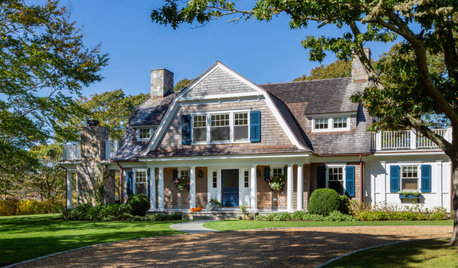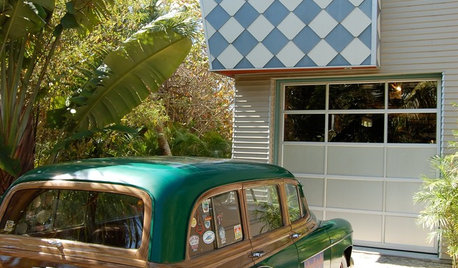GMA's Tips on Bubble-Proof Buying
chisue
17 years ago
Related Stories

PETSPet-Proofing Your Home: A Room-by-Room Guide
Not all pet dangers are obvious. Keep furry friends safe and sound by handling all of these potential hazards
Full Story
OUTDOOR PROJECTSBring In the Birds With a Homemade Bubble Rock
An avian expert from Southern Indiana shows how to make a burbling fountain that migrating birds will love
Full Story
REMODELING GUIDESTop 10 Tips for Choosing Shower Tile
Slip resistance, curves and even the mineral content of your water all affect which tile is best for your shower
Full Story
BATHROOM DESIGN7 Tile Tips for Baths on a Budget
How to Add Style to Your Bathroom Without Breaking the Budget
Full Story
BATHROOM DESIGNDreaming of a Spa Tub at Home? Read This Pro Advice First
Before you float away on visions of jets and bubbles and the steamiest water around, consider these very real spa tub issues
Full Story
PETSHouzz Call: Show Us Your Pet Projects!
Bubble windows, fountains, doghouses, showers — what outdoor treats have you put together for your furry friends?
Full Story
CONTRACTOR TIPSYour Complete Guide to Building Permits
Learn about permit requirements, the submittal process, final inspection and more
Full Story
FURNITURESmart Shopper: How to Judge Antique Furniture Quality
Pick the treasures from the trash without expert experience by learning how to evaluate antiques and what questions to ask
Full Story
KITCHEN DESIGN12 Breakfast Bars With Coffee Shop Appeal
Give even a small kitchen a sociable vibe by inserting a stylish seating post
Full Story
MOVINGRelocating? Here’s How to Make the Big Move Better
Moving guide, Part 1: How to organize your stuff and your life for an easier household move
Full Story





caroeib
terezosa / terriks
Related Discussions
Buying plugs
Q
Tips for riding out a recession?
Q
Cookalong #2 --------------------- GARLIC
Q
RECIPE: Yummy, mistake-proof recipes
Q
cpowers21
mrblandings
acoreana
C Marlin
jy_md
chisueOriginal Author
quirkyquercus
cindyb_va
terezosa / terriks
caroeib
C Marlin
caroeib
C Marlin
caroeib
quirkyquercus
chisueOriginal Author
minet
sweet_tea
C Marlin
jakkom
chisueOriginal Author
C Marlin
jakkom
quirkyquercus
minet
bellaflora
mfbenson
C Marlin
C Marlin
quirkyquercus
mwkbear
C Marlin
kaleberg